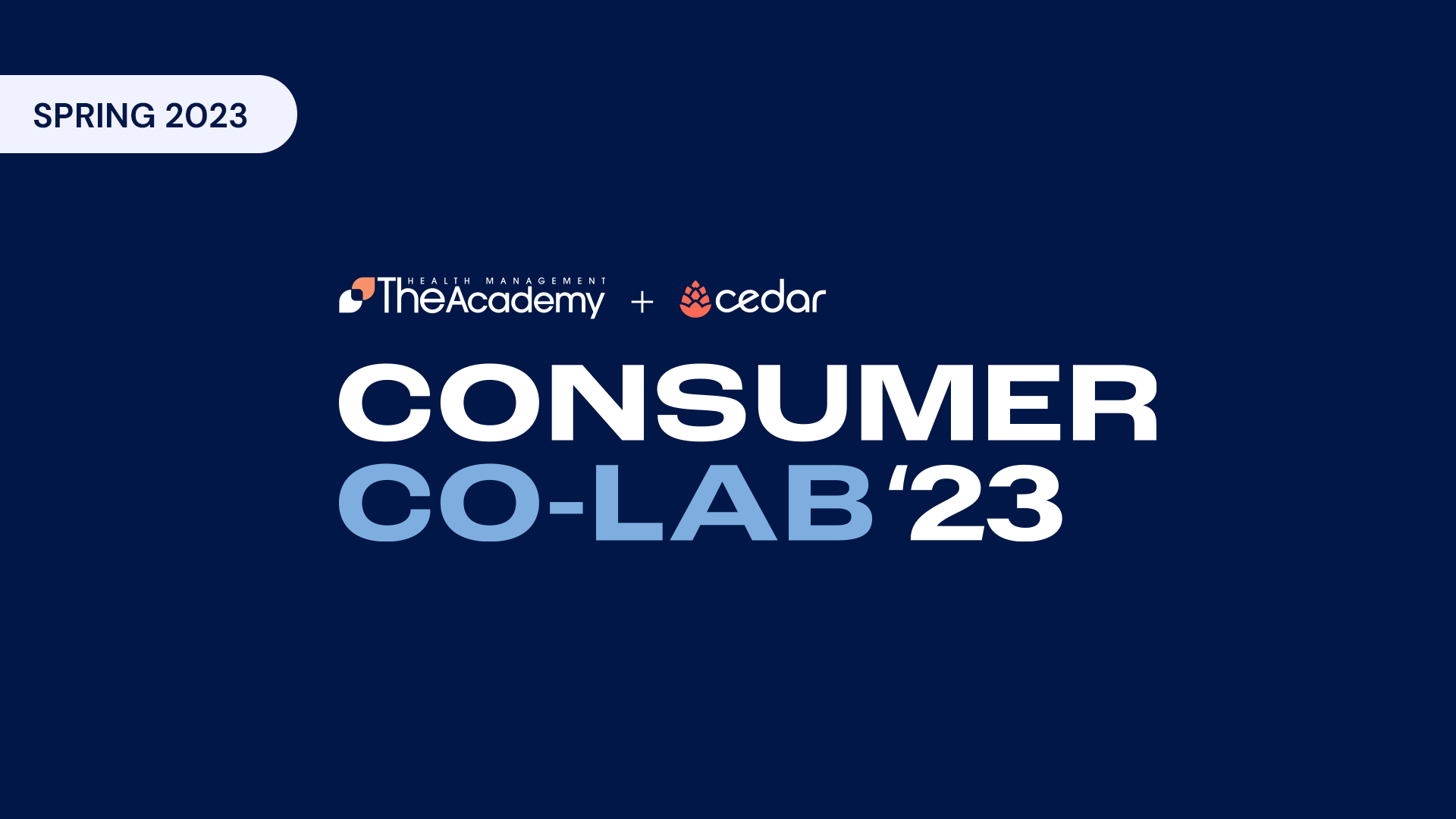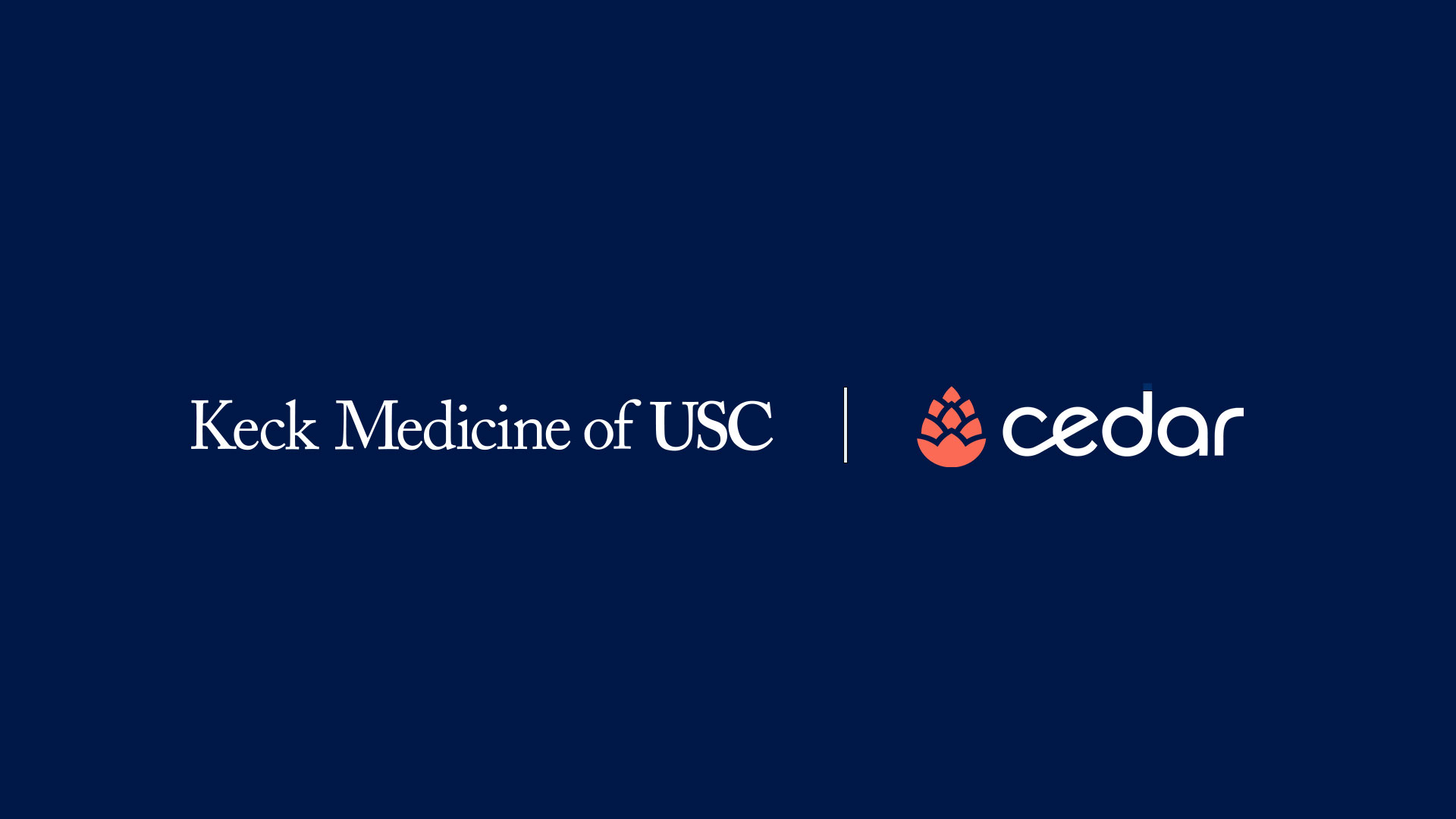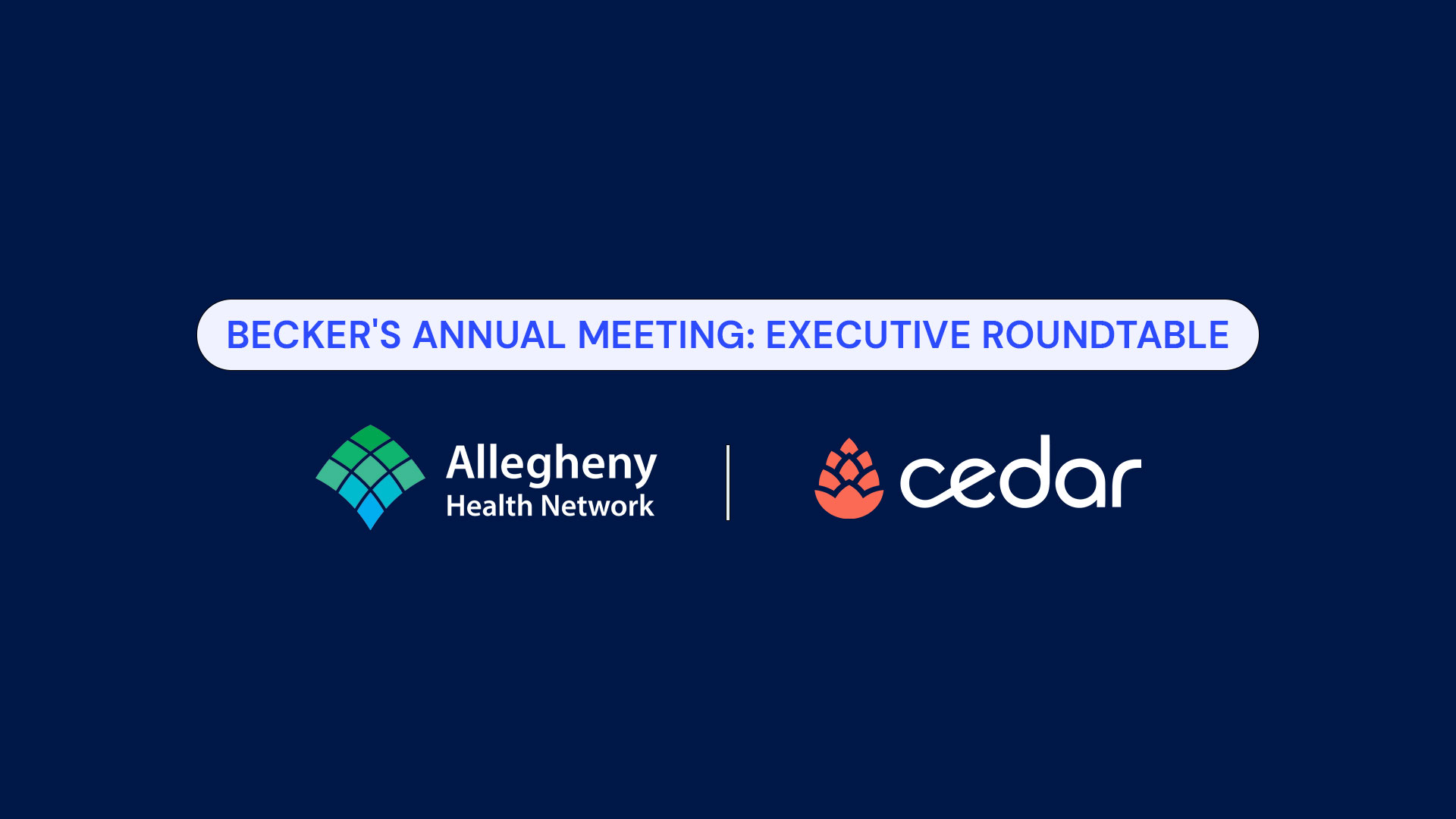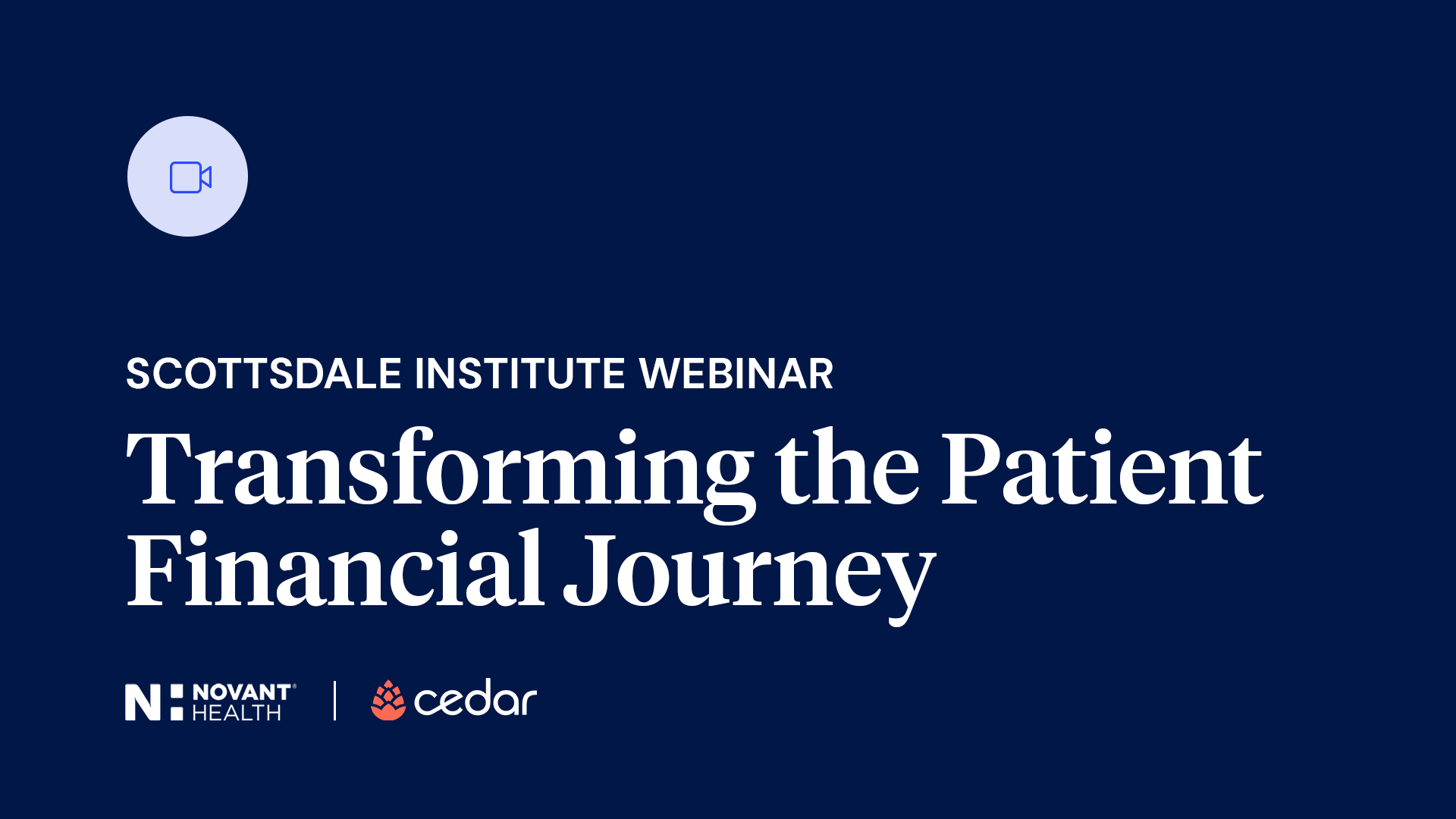Together with The Health Management Academy (THMA), Cedar + THMA hosted the Spring 2023 Consumer Co-Lab to have a candid conversation with Leading Health Systems (LHS) to explore the current – and future – state of consumerism. This is the second event in an exclusive series that brings together a group of healthcare leaders to share strategies, challenges, and opportunities to improve the consumer journey and experience.
To kick off the event, Dugan Winkie, VP of Strategic Partnerships at Cedar and Jessica Liu, Executive Director for the Center for Transformation at The Health Management Academy ‘set the stage’ by defining where LHS can focus their time and efforts to make substantial progress towards a consumer-centric healthcare system.
“Consumerism is the key to being relevant. And we all know that the post-pandemic consumer is a different consumer who wants more convenience and demands better access,” said Jessica. She went on to explain that a consumer-centric strategy needs to be driven by personalized, data-driven care that is equitable and democratized and connects the broader health system so that healthcare consumers feel empowered and able to navigate on their own.
Leaders acknowledge collectively within the Consumer Co-lab that there are numerous barriers standing in the way, including workforce shortages, legacy infrastructure and systems, and resistance to adopting new technologies. Combined with financial pressures being at an all-time high, many organizations are being tasked with the impossible – doing more with less to get the most out of current investments in order to overhaul the consumer experience.
In research conducted by The Health Management Academy, only 25% of LHS agree or strongly agree that their EHR satisfies the development of their digital front door. Organizations need to find a way to maximize the benefits of EHRs while simultaneously maximizing the benefits of best-in-class consumer engagement solutions.
It’s not an easy task ahead, and leaders all understand the challenges they face to shift toward a consumer-centric approach. However, leaders also acknowledged that while it’s not a one size fits all scenario, organizations have had to get creative on how they maximize their current investments while optimizing for the future.
System of Record vs. System of Engagement
“Having a system of engagement sits on top of a system of record is the norm in all other industries outside of healthcare,” explained Dugan, “So why hasn’t this taken hold in healthcare?” Dugan challenged attendees to look at how we consolidate efforts and jump on the opportunity where integrations, interoperability and accessibility are no longer constraints.
How do you optimize for today, while building for tomorrow?
Dugan outlined four key tenants that LHS can focus on to optimize their patient experience. These four key tenants, which all tie together, provide a tangible framework for optimizing the patient experience:
- LHS now have an opportunity to take advantage of open architecture – as a result of the advancements in technology platforms, organizations can now build one simple experience for patients to accelerate the adoption of systems of engagement through strategic partnerships.
- Open architecture is made possible through seamless integrations or the ability to ingest data from a variety of systems of record.
- Open architecture and seamless integrations require data-driven analytics and personalization to advance both business and consumer objectives LHS are driving towards.
- All of these tenants require consumer-grade agility, or the ability to adjust to rapidly changing consumer tastes and preferences, and require LHS to find partners who can adjust and adapt at that same rate.
In summary, this strategy exchange challenged the status quo:
- LHS have unprecedented financial/budgetary constraints and must be selective/strategic on consumerism investments
- EHRs / systems of records cannot meet consumer-centric needs but a ‘rip and replace’ approach is not the answer
- Systems of engagement can help optimize for today while building for tomorrow and this is the norm outside healthcare
- Not all engagement partners are created equal; evaluate them against open architecture, interoperability, personalization, and agility core tenets
- Vendor incentive alignment and hard ROI are critical given the limited margin for error
Read more about the partnership with The Health Management Academy here. If you would like to join this community of consumer-centric leaders to build the future of consumerism, reach out to attend our upcoming Co-Lab in October.
Liz Austin is the Executive Marketing and Programming Lead at Cedar.



